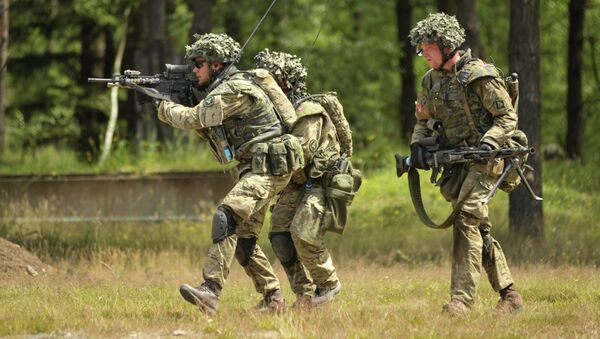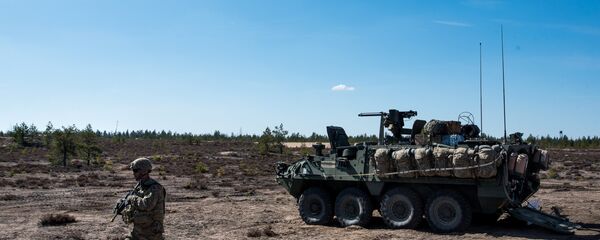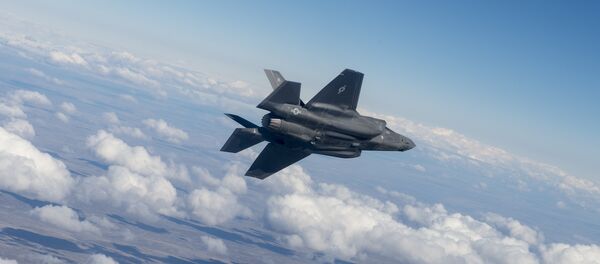The West's perennial arguments for the arms race are Russia's alleged bloodthirstiness and the weakness of NATO's eastern flank. The RAND Corporation, an American global policy think-tank, conducted several simulations of a Russian invasion of the Baltic states and arrived at an inauspicious conclusion: NATO is unable to protect its members, who supposedly run a great risk of a Russian invasion. According to the RAND Corporation, it would take Russia a mere 60 hours to march into the capitals of Estonia and Latvia.
According to Michael Jarlner of the Danish newspaper Politiken, this is an echo of the Cold War. The RAND Corporation operates with full support of the state and was founded by the Douglas Aircraft Company shortly after WWII (one of the predecessors of the aerospace company McDonnell Douglas). The majority of its 1,700 employees are US State Department officials, so the think-tank is all but "unbiased."
On a funnier note, the German magazine Der Spiegel recently noted that it was one of the RAND Corporation's more legendary researchers, nuclear war theoretician Herman Kahn, who served as the primary inspiration for film director Stanley Kubrick for his caustic Cold War satire "Dr. Strangelove."
#Superfascism #Strangelove @PMBreedlove calls for greater #US intelligence.https://t.co/FRzwX0I6QA pic.twitter.com/PTbWKC0iHJ
— John Delacour (@JohnDelacour) 2 мая 2016 г.
After Russia regained its footing economically in the 21st century, organizations such as RAND put the alliance at the center of the entire Western defense system, opposed by an increasingly "aggressive" and "unpredictable" Kremlin. The point of this rhetoric is to coerce European policymakers into increasing their military spending.
In the case of Denmark, the Kingdom's military expenditures dropped from 2.1 percent of national GDP at the end of the Cold War to 1.18 percent in 2015. At the same time, the Danes are being continuously indoctrinated with the idea of a Russian threat. The country has successfully created the enemy's image; this is essential, as it hopes to coax citizens and taxpayers into supporting the military with more and more money and preparing for engagement in NATO's anti-Russian procedures. Currently, Denmark is preparing to contribute 150 soldiers to the defense of Estonia against its eastern neighbor.
"It does not make any sense for Russia to conquer the Baltic states to show NATO's weakness," Koefman said, as quoted by the Danish newspaper.
Nevertheless, European politicians in general and Danish ones in particular keep touting the far-fetched horror scenario and putting all the wrong ideas into their fellow countrymen's heads.





